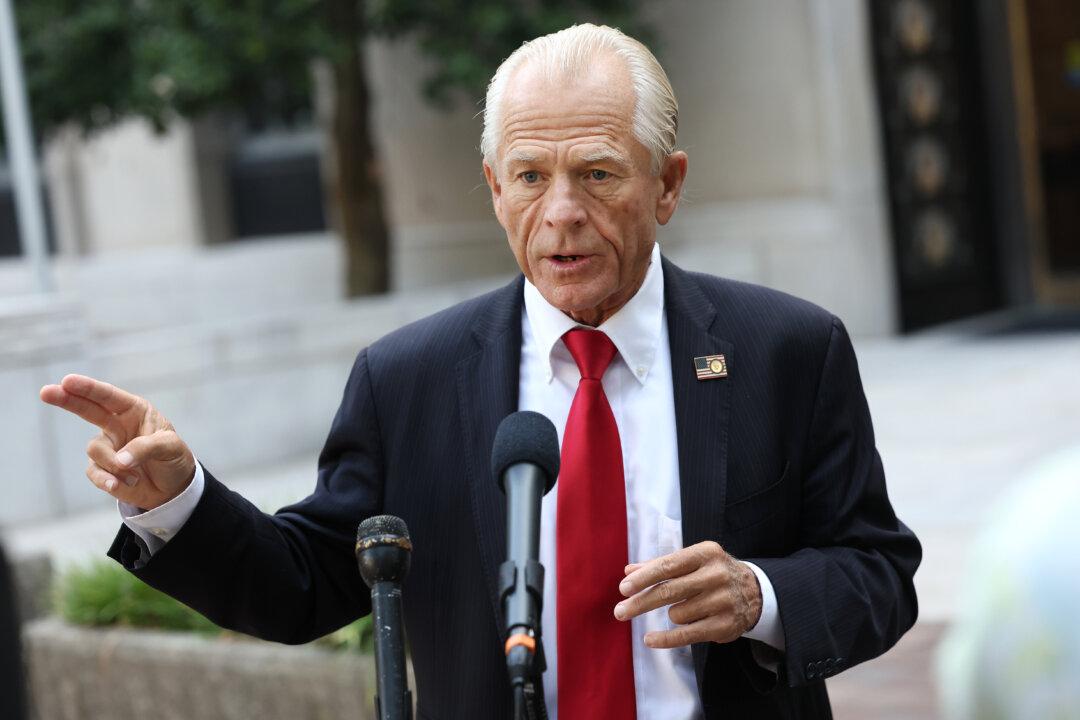A federal judge has rejected a request by former Trump White House adviser Peter Navarro to be allowed to stay out of prison while he appeals a conviction for contempt of Congress.
Mr. Navarro was charged with contempt of Congress after defying a pair of subpoenas from the now-disbanded House committee that investigated the breach of the U.S. Capitol on Jan. 6, 2021, which was controlled at the time by Democrats. He was found guilty on two counts of contempt of Congress and sentenced last month to serve concurrent four-month prison terms.





